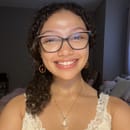“You have chosen poverty!” were the first words I heard from the other end of the call. It was late at night, I was tired, but a part of me instantly made the connection. He was referring to my major. The other part of me, not so much. Whether it was from a place of denial – or hope, I politely asked, “Come again please?”
“You have chosen poverty,” repeated Jeff Pearce with the same declarative tone as the first time. From then onwards, an eye-opening conversation that almost felt like the red pill from The Matrix began. After more than 40 years of journalism experience, Jeff Pearce, whom I contacted on Twitter, did not hesitate to share some insightful advice. Nonetheless, ending the call left me wondering if people’s beliefs about the industry eventually ended up true for most journalists. At that moment, I felt discouraged.
This was not my first time hearing comments such as this one. That night, I reflected on the past few months I spent at Carleton University as an undergraduate student in the bachelor of journalism, where I faced similar situations.
Comments such as “you must have disappointed your parents,” or “you can never trust these journalists,” and my personal favourite “you have chosen poverty” are nothing out of the ordinary in the Carleton student community.
Carleton University is one of the two leading journalism schools in Canada along with Toronto Metropolitan University (TMU) in Toronto. My choice to attend Carleton University’s J-school was mainly based on its long-lived reputation that is traced back to the 1940s, its high rankings within Canada and its dynamic hands-on workshops that I have yet to experience in the coming years.
By finishing my first semester, I uncovered a burning desire to learn more. In the journalism program at Carleton, I am in my element. What happens then, when the people that surround you have a distorted image of the profession that you pursue so passionately? How do you respond on behalf of generations of corruption in the journalism industry that has completely lost its trustworthiness in the eyes of the public? This personal essay will go over some of the major assumptions and misunderstandings associated with journalism in hopes to steer away from some of these misconceptions.
One of the first and most common tags associated with journalism is gossip. Typically referred to as “the gossiping major,” journalism students have heard these stereotypes. Although journalism may look as simple as reporting on stories about the world, to the world, the craft of composing a story in a compelling way is so much more than “gossip.”
This multifaceted profession comes with a huge amount of responsibility. Holding the pen to tell a story is a form of power and of strength. The stories that a journalist tells mould the worldviews of communities, institutions, government bodies and so much more. Is it then fair to associate journalism with something as low as… gossiping? Good journalism work goes through a fact-checking process where the information provided is backed up with credible sources.
I believe the root of media skepticism is found somewhere in the folds of media history. Have you ever come across overly exaggerated, dramatized and sensationalized headlines? If yes, you have experienced the phenomenon of yellow journalism. This, with many other factors, created a deep sense of distrust toward media organizations.
In a complex and increasingly globalized society, the role of journalism does not always appear in black and white. Factors such as money, fame, competition, and political affiliations affect the authenticity of the craft. This creates gray areas and blindspots in the industry that have expanded during the past few decades.
I like to compare it with the play of light on the multifaceted surface of a diamond. Every facet has a different angle at which light is absorbed or perceived. Similarly, journalism may look like gossip about the royal family on one facet, but it can also look like war coverage with a humanitarian angle, insights on political debates, or the odds that your favourite basketball team wins the next game! Case in point, the type of journalism one is exposed to should not shape a generalized idea of the profession.
Another common misconception I noticed is the fact that journalism is an “easy” major. A major you join when you are not so sure of what you want to do in the future. Some students tend to compare majors depending on the workload they have in their programs. Although it is true that some majors require more academic work than others, the effort is not limited to these selected programs, usually labelled as “hard.”
A good example of this is the amount of time you spend studying at the library. I have had many people ask me why I spend so much time at the library when my program is “so easy.” However, it is important to note that the level of your program’s intensity should not, and does not determine the amount of time you may want to spend learning. Everyone has a unique set of visions tailored to their academic goals, which is highly dependent on their learning pace. Understanding this relationship is important to avoid these comparisons.
Despite it all, my first semester at Carleton University prompted me to think about why I wanted to become a journalist. In a discussion group, my teaching assistant asked us a question that has stuck with me until this day. A question that seems so simple, yet so difficult to answer: “What kind of journalist do you want to be?” I believe the answer to every big question lies under the nitty gritty process of soul searching. That is what I did during my first semester and what I will continue doing moving forward.



